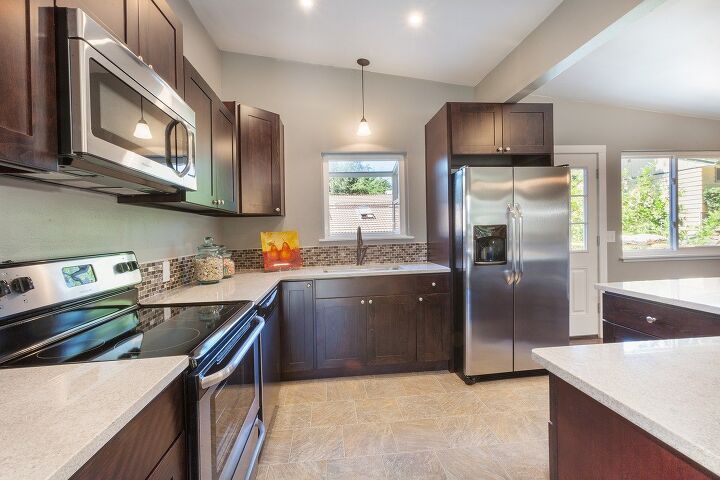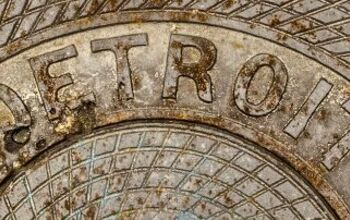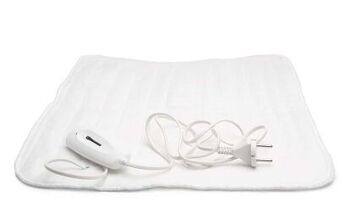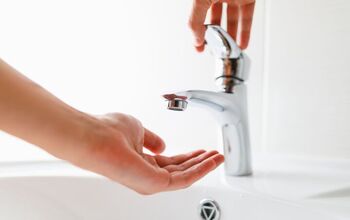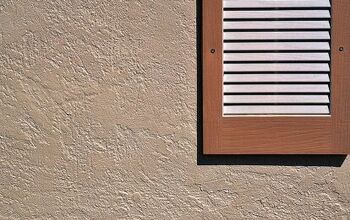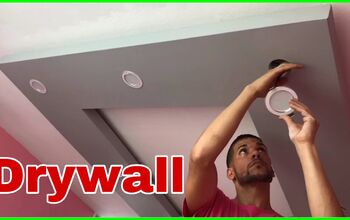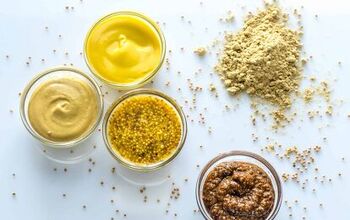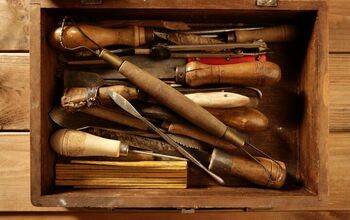What Are The Pros And Cons Of Quartzite Countertops?

When it comes to countertops, there are many choices for materials, from granite to marble to quartz and more. Another option for a durable countertop is quartzite, a natural stone often confused with quartz. Before choosing your countertop material, consider the pros and cons of quartzite countertops.
Quartzite is a natural material that is durable, heat-resistant, low-maintenance, weather-resistant, and looks like marble. However, quartzite also has cons, including limited colors and susceptibility to damage and staining from liquids and sharp objects. People often confuse quartzite with quartz, but the two are not the same.
You can use quartzite in several different applications, including countertops. Quartzite can be an excellent choice for kitchen countertops, providing a durable and attractive finish. However, it’s best to know as much as you can about any material before you make your final decision.
Do You Need Countertop Installation Services?
Get free, zero-commitment quotes from pro contractors near you.

What Is Quartzite?
If you’re considering quartzite for your countertops, then you might assume you know what it is. However, this stone is often confused with its similarly named engineered cousin, quartz.
Quartzite is a metamorphic rock. It forms deep within the earth’s crust when extreme heat and pressure interact with sandstone, fusing it with quartz crystals. Thanks to its creation process, quartzite is extremely hard and resistant to heat and other elements (although not impervious).
Quartzite is available in a few colors and textures, resembles marble, and it is a good choice for various applications. In addition to countertops, you can also use quartzite in outdoor applications or as a fireplace or shower surround. However, it’s essential to prepare it correctly and seal it first.
Getting To Know The Pros And Cons Of Quartzite Countertops: The Difference Between Quartz And Quartzite
The most considerable difference between quartz and quartzite is the creation process. While quartzite is naturally occurring and quarried, like granite, quartz is engineered using the same crystals found in quartzite. In addition to these crystals, quartz also contains other components, like glass and resins.
Since many people often confuse quartzite with quartz, here’s a quick peek at the differences between these two materials.
| Quartzite | Quartz |
| Naturally occurring stone | Engineered stone |
| Resistant to heat | Not very heat resistant |
| Very porous; requires regular sealing | Does not need extra sealing |
| Can stain easily | Not as susceptible to stains |
| Natural, organic patterns | Uniform patterns |
| Mainly light grays or whites | Available in many colors |
| Average cost is $100-$200 per square foot | Average cost is $55-$75 per square foot |
Pros And Cons Of Quartzite Countertops
Of course, no matter what type of material you choose for your countertops, you’ll have some pros and cons. Therefore, it’s always crucial to know any material’s qualities before deciding to use it in your home. Here’s a look at the pros and cons of quartzite countertops.
Quartzite’s pros far outweigh its cons, which is a plus by itself. Many of the pros are what make quartzite a fantastic countertop choice for a bustling kitchen.
1. Pro: Quartzite Looks Like Marble
Marble is a popular choice for countertops, but it can be rather challenging when it comes to maintenance. Marble doesn’t tend to hold up too well in a kitchen, chipping and scratching easily. For this reason, many installers either won’t put marble countertops in the kitchen or refuse to offer a warranty.
Therefore, quartzite’s durability and similar appearance to marble make it a good substitute for your kitchen countertops.
2. Pro: Quartzite Is Durable
On the Mohs Scale, which rates the hardness of minerals, quartzite’s rating is approximately seven. Some varieties fall even closer to an eight on the scale. Compare this to marble’s hardness rating of about three, and you can see how much more durable quartzite is.
Quartzite is one of the strongest stones there is. In fact, it’s even stronger than granite, which falls closer to a 6 on the Mohs scale. This hardness makes quartzite very resistant to scratches and chips, outstanding qualities to have in a kitchen. Still, why tempt fate?
When you’re chopping or cutting on the countertop, use a cutting board. Although quartzite is scratch-resistant, it isn’t invincible to scratches. Plus, you can ensure your quartzite retains its original beauty and durability for as long as possible.
3. Pro: Quartzite Is Low Maintenance
Kitchen countertops undergo a lot of use, and the last thing you want is cleaning them to take forever. Luckily, quartzite countertops are a breeze to clean, and you don’t need any special cleaners to do it. Simple soap and warm water will do the trick, and you should avoid using bleach.
Ensure you wipe up any spills quickly, even though you should have sealed your countertops upon installation. Using a disinfectant wipe to mop up a spill promptly is okay, just don’t make a habit of it.
For maintenance, it’s recommended to reseal your countertops once a year for the first five years. Although some sealers claim to last for as long as 15 years, it depends highly on the sealer you use! To ensure your countertops last a long time, it’s best to seal them annually.
4. Pro: Quartzite Holds Up Well To UV Rays And Is Weather And Heat Resistant
If you have an outdoor kitchen, quartzite is an excellent choice for your countertops. The durable material is very UV resistant and holds up well in a variety of weather conditions. This quality is also great for indoor kitchens that receive a lot of natural light, so fading is not an issue.
Quartzite can stand up very well to heat, much more so than man-made quartz. However, it’s always best to place hot pans and pots on a trivet or potholder. Still, it’s nice to know that setting down a hot pan isn’t an instant death sentence for your countertops.
Pros And Cons Of Quartzite Countertops
You can’t have pros without cons, and as durable and beautiful as quartzite is, it’s not without some downsides. So, when considering the pros and cons of quartzite countertops, you can’t ignore the downsides.
1. Con: Quartzite Can Stain Easily
Quartzite is extremely porous, so it seeps up liquids very quickly. Even when you seal your countertop, it’s best to wipe up any spills as soon as possible. Otherwise, you run the risk of staining your counters permanently.
However, if you seal your countertops regularly and stay on top of spills, staining shouldn’t be a huge issue. It’s worth noting that there are many different quartzites, like Taj Mahal and White Macaubus. Some varieties of quartzite last longer than others. Likewise, you will need to seal some types of quartzite more than others.
Therefore, keep this in mind when putting together your maintenance plan for your quartzite. Although sealing once a year is the norm, you may need to do it more often, say every six months.
Of course, this is a task you can handle yourself, usually in a short amount of time. All you need to do is carefully follow the instructions on the sealer. But, it’s still something to consider when choosing your countertops.
2. Con: Quartzite Has Limited Color Choices
Since quartzite is a natural stone, you get limited color options. For the most part, your quartzite color choices are white, gray, and some shades in between. However, it’s not unheard of to see some pink or red undertones, depending on the amount of iron oxide in the stone.
Some quartzite might even have some hinges of yellow or blue. But, the most common shades are variations of white and gray. Therefore, if you want more of a color selection, you’ll likely need to opt for a different material.
3. Con: Sharp Objects Can Damage Quartzite Countertops
Although many materials can resist damage from sharp objects, quartzite doesn’t hold up well to a knife. If you cut directly on a quartzite countertop, the knife will scratch and mark the countertop easily. Of course, an easy way around this downside is to always use a cutting board.
The Pros And Cons Of Quartzite Countertops: Final Thoughts
Overall, if you’re looking for a durable and beautiful material for your kitchen counters, quartzite is an excellent option. As long as you seal it regularly, it lasts for many years, and it isn’t much pricier than similar countertops. But, if you’re looking for a broader range of color choices, quartzite isn’t your best bet.
Related Questions
Where can you purchase quartzite countertops?
Home improvement stores like Home Depot carry quartzite countertops, and you can also research local stone galleries for more options. No matter where you decide to purchase your material, take your time and shop around first. Narrow down your options to your top two or three before making your final decision. Also, carefully inspect any slabs before buying them and make sure the dealer knows if you want a specific slab.
How much do quartzite countertops cost?
Quartzite varies greatly in cost based on the quality of the stone. The price per installed square foot averages out to around $90. However, it can range anywhere from about $60 to $200 per square foot. More complicated installations can cost even more. However, depending on your preferences and desired look, quartzite isn’t much more than similar choices like marble, quartz, or granite. Therefore, if you decide to choose one of those options instead, most likely it wouldn’t be because of cost.
What is “leathered” quartzite?
Leathered refers to the finish of the stone. You can have polished stone, which is the popular high-gloss finish. Then there is a honed finish, which provides a more matte but still smooth look.Leathered stone is somewhere in between, with a matte appearance but pebbled texture. It gives the quartzite more of a rustic look if you’re not a fan of high shine. However, the pebbled texture creates a lot of fissures and crevices, which can get tricky to clean. Therefore, leathered quartzite might not be the ideal finish for a busy kitchen.
Do You Need Countertop Installation Services?
Get free, zero-commitment quotes from pro contractors near you.


Stacy Randall is a wife, mother, and freelance writer from NOLA that has always had a love for DIY projects, home organization, and making spaces beautiful. Together with her husband, she has been spending the last several years lovingly renovating her grandparent's former home, making it their own and learning a lot about life along the way.
More by Stacy Randall



